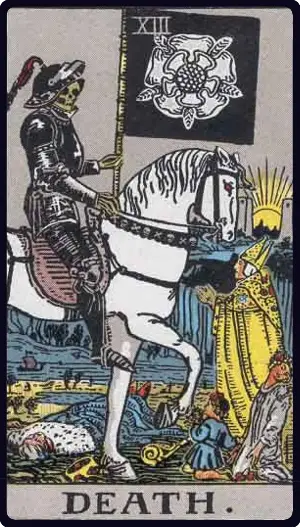


Friendship is a beautiful and essential part of our lives, providing support, companionship, and shared experiences. However, like any relationship, friendships can face challenges and even come to an end. The topic of death in friendship is a sensitive and complex one, but it's important to explore how this natural part of life can impact our connections with others. In this article, we'll delve into the concept of death in friendship, examining the various ways in which it can manifest and the potential for growth and transformation that can arise from these experiences.
When we think of death, we often associate it with the physical passing of a person. However, in the context of friendship, death can take on different forms. It may involve the end of a friendship due to changing circumstances, a falling out, or simply growing apart. Just as physical death marks the end of a person's life, the death of a friendship signifies the conclusion of a significant bond.
It's important to acknowledge that the end of a friendship can evoke a range of emotions, including grief, sadness, and even relief. Just as we mourn the loss of a loved one, we may also mourn the loss of a friendship and the shared experiences, trust, and connection that it once provided. Understanding the impact of this type of "death" in friendship is crucial in navigating the complexities of human relationships.

While the end of a friendship can be painful, it also presents an opportunity for growth and transformation. Just as the cycle of life includes death and rebirth, the conclusion of a friendship can pave the way for new connections, personal reflection, and the chance to redefine our social circles. It's essential to recognize that the end of one friendship does not diminish the value of the connection or the experiences shared. Instead, it opens the door to new possibilities and the potential for deeper, more meaningful relationships.
Embracing the transformative nature of death in friendship allows us to honor the memories and lessons learned from the relationship while also embracing the evolution of our social and emotional landscapes. By acknowledging the change and seeking opportunities for growth, we can navigate the complexities of loss and renewal in our friendships.
When a friendship comes to an end, it's natural to engage in reflection and introspection. This period of introspection provides an opportunity to examine the dynamics of the friendship, the reasons for its conclusion, and the impact it had on our lives. Reflecting on the experiences shared, the challenges faced, and the growth that occurred within the friendship can aid in the healing process and provide closure.
Engaging in self-care and seeking support from other friends or loved ones can also facilitate the healing process. It's essential to acknowledge and process the emotions that arise from the end of a friendship, allowing ourselves to grieve and heal in our own time and manner. Through this process, we can emerge with a deeper understanding of ourselves and a renewed sense of resilience and self-awareness.
As we navigate the aftermath of a friendship's end, we may find ourselves seeking new connections and opportunities for social engagement. While the prospect of forming new friendships can be daunting, it also presents an opportunity to explore different interests, perspectives, and experiences. Nurturing new connections allows us to embrace the potential for growth and renewal in our social circles.
Rebuilding friendships also involves a sense of vulnerability and openness, as we navigate the complexities of trust, communication, and shared experiences. It's important to approach new connections with an open heart and mind, allowing for the organic growth of relationships while honoring the lessons learned from past friendships. By fostering new connections, we can create a supportive and diverse network of friends who contribute to our personal growth and well-being.
While the end of a friendship marks a significant transition, it's essential to honor the memories and experiences shared with the friend. Reflecting on the positive moments, the challenges overcome, and the laughter and support exchanged allows us to cherish the impact of the friendship on our lives. Whether through keeping mementos, revisiting meaningful places, or simply reminiscing about shared experiences, honoring the memories of the friendship can provide comfort and closure.
It's also important to acknowledge the role that the friendship played in shaping our identity and personal growth. By recognizing the influence of the friendship on our values, beliefs, and aspirations, we can integrate its impact into our ongoing journey of self-discovery and personal development.
The concept of death in friendship invites us to seek meaning and acceptance in the face of change and loss. While the end of a friendship may evoke feelings of uncertainty and sadness, it also offers an opportunity to find purpose and understanding in the experience. Acknowledging the natural ebb and flow of relationships and the impermanence of human connections can aid in fostering a sense of acceptance and resilience.
Seeking meaning in the aftermath of a friendship's end involves recognizing the lessons learned, the personal growth achieved, and the enduring impact of the connection on our lives. By embracing the complexities of human relationships and the inevitability of change, we can cultivate a deeper sense of appreciation for the connections that shape our experiences and contribute to our personal evolution.
As we navigate the complexities of death in friendship, it's important to celebrate the potential for new beginnings and the emergence of fresh opportunities for connection and growth. Embracing the transformative nature of change allows us to approach new friendships with a sense of curiosity, openness, and resilience. By fostering a spirit of celebration and renewal, we can honor the memories of past friendships while embracing the potential for new and enriching connections.
Recognizing the beauty of new beginnings also involves acknowledging the resilience and adaptability that we possess as individuals. By embracing the cycle of change and renewal, we can approach new friendships with a sense of optimism and excitement, allowing for the organic growth of meaningful and supportive connections in our lives.
Death in friendship is a natural and complex aspect of human relationships, inviting us to navigate the complexities of change, loss, and renewal. While the end of a friendship may evoke a range of emotions, it also presents an opportunity for growth, reflection, and the cultivation of new connections. By embracing the transformative nature of change and honoring the memories of past friendships, we can navigate the complexities of human relationships with resilience, openness, and a renewed sense of purpose.
Have questions or need guidance? Reach out to us anytime at [email protected]
We're here to help you on your tarot journey.
© Copyright 2024 by TarotKeeper.com. All rights Reserved.